Publications
Articles, publications, books, tools and multimedia features from the U.S. Institute of Peace provide the latest news, analysis, research findings, practitioner guides and reports, all related to the conflict zones and issues that are at the center of the Institute’s work to prevent and reduce violent conflict.
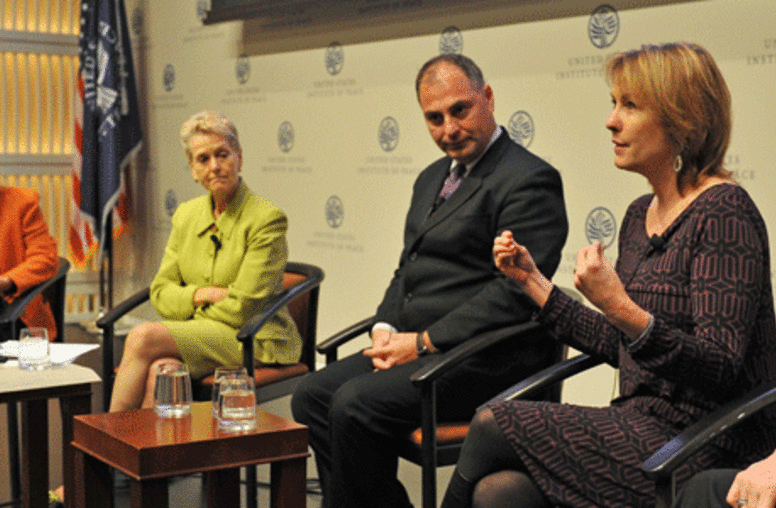
Gender and Peacebuilding: Highlights from 2011 and Looking Ahead to 2012
Gender and Peacebuilding Center Director, Kathleen Kuehnast, discusses USIP's focus on women's equality in 2011 and looks ahead at the gender projects USIP will work on in 2012.
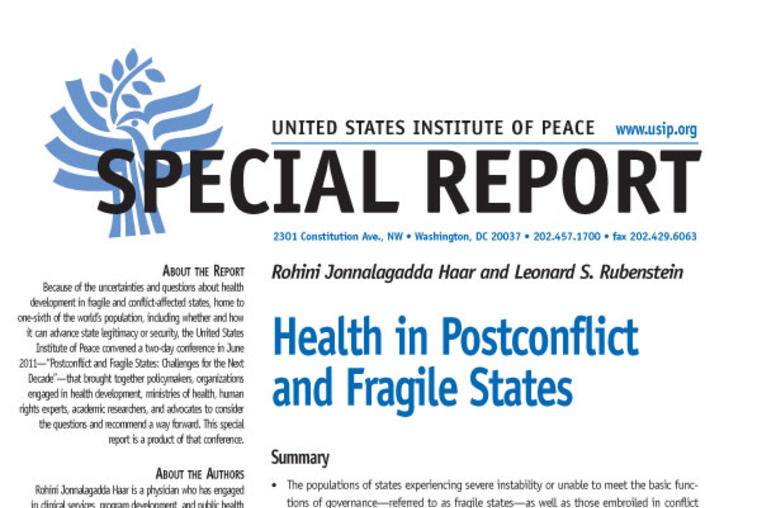
Health in Post-Conflict and Fragile States
Civilian health, health care workers, and health facilities disproportionately suffer in countries experiencing severe instability, but global health donors have yet to make developing health systems in such states a priority. Doing so could both make populations healthier and contribute to state legitimacy.
Universities for Ushahidi
The U4U training program brings young people from conflict zones around the world to train them in the use of crowdsourced mapping tools like Ushahidi as well as in the skills of conflict management, helping them address community needs in-country, train others, and join a growing community of global crisis mappers and technology-enabled peacebuilders.
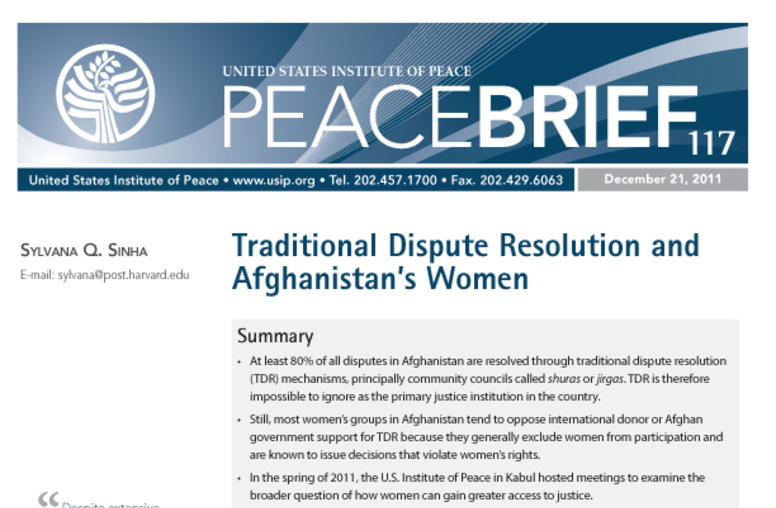
Traditional Dispute Resolution and Afghanistan’s Women
This brief is based on recent discussions USIP held in Kabul on traditional dispute resolution (TDR) and women’s rights. Based on these discussions and USIP’s research, it outlines recommendations on how to increase access to justice for women. Sylvana Q. Sinha served as rule of law adviser in USIP’s Kabul office from November 2010 to November 2011.
After 2014: Managing the Transition in Afghanistan
USIP hosted an event in which experts look at building the Afghan economy in anticipation of the big transition in 2014, when American and NATO forces will finish turning responsibility for the country's security to the Afghan government. It's also when, a new World Bank report suggests, the bulk of foreign assistance, now keeping the Afghan economy alive, will begin to dry up.
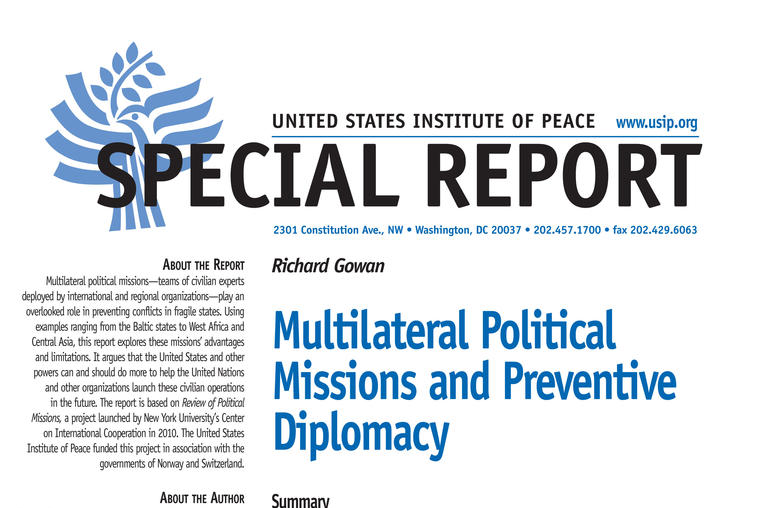
Multilateral Political Missions and Preventive Diplomacy
Multilateral teams can often bring a level of expertise and impartiality to preventing conflicts that other missions cannot. With a little more support, they can be an even better tool for conflict prevention. The report is based on Review of Political Missions, a project launched by New York University ’s Center on International Cooperation in 2010. The United States Institute of Peace funded this project in association with the governments of Norway and Switzerland.
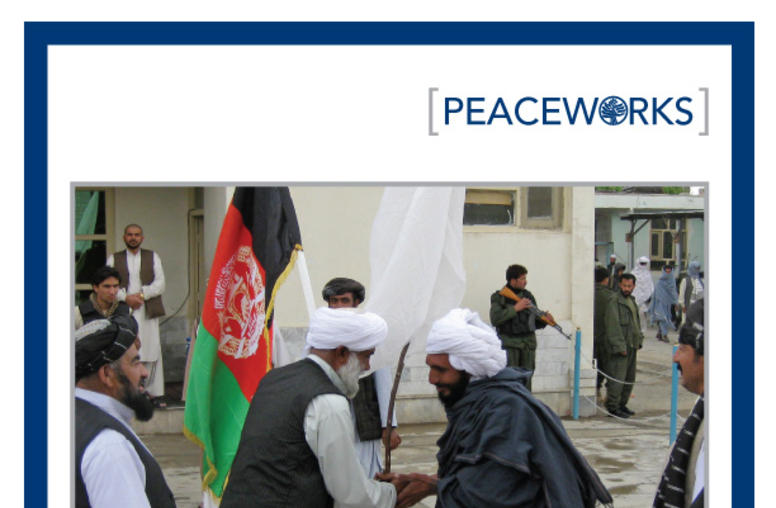
Beyond Power-sharing: Institutional Options for an Afghan Peace Process
Much of the debate about a peace settlement with insurgents in Afghanistan focuses only on political or territorial power sharing. But a successful peace process will require a broader array of measures that allow conflicting parties to share influence and balance that influence with more roles for noncombatants, civilian political actors, and vulnerable groups.
Building Peace and a Partnership with the Military
We asked USIP leaders, from board members to senior staff and experts to explain the effect that events around the world and here at home will have on the U.S. and the contributions the Institute can and does make during a time of tremendous challenge – and opportunity. USIP Chief of Staff Retired Col. Paul Hughes served nearly 30 years on active duty with the Army.
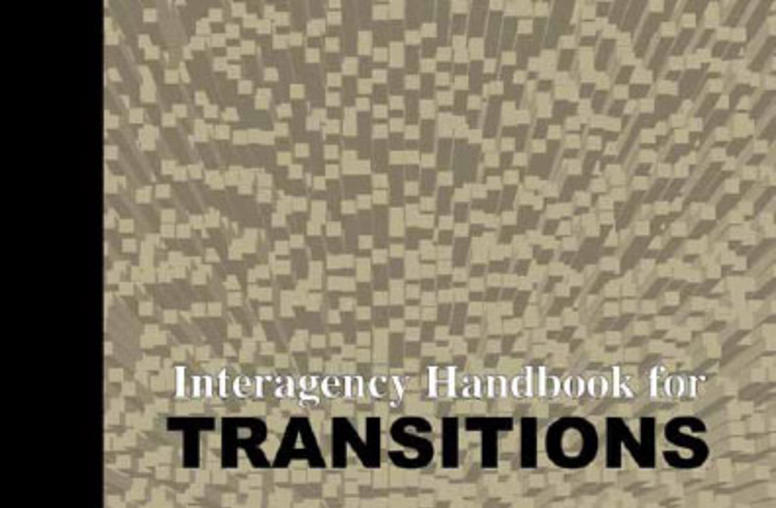
USIP and the U.S. Army Team Up For How-To Guide on Stability Operations
The United States Institute of Peace, the Simons Center for the Study of Interagency Cooperation and the U.S. Army Combined Arms Center got together to discuss challenges and lessons learned from more than a decade of stability operations.
Value of Police Assistance
December 2, 2011 Bob Perito, director of USIP’s Security Sector Governance Center of Innovation, discusses the value of police assistance programs in conflict affected countries – and the importance police can play in counter-insurgency operations. What role should local police play in counter-insurgency operations like those in Iraq and Afghanistan? In the formula for successful counter-insurgency operations—clear, hold and build—local police play a critical role. After U.S. and hos...